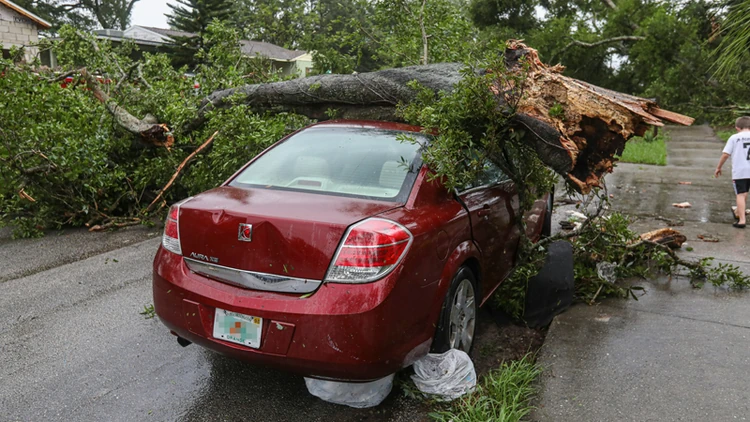Experts say the impact might not be immediate

Every day this week tornadoes have ripped across the U.S., hitting Texas and Oklahoma, as well as the Midwest and even Pennsylvania. The storms have left behind a trail of property damage and destruction costing billions of dollars.
AccuWeather's team of long-range forecasters and expert meteorologists predict 1,250 to 1,375 tornadoes will hit the United States this year. That forecast is slightly higher than the historical average of 1,225 tornadoes annually.
Weve seen with climate change that severe weather threats, including tornadoes, are happening outside of the time of year and places that people typically associate with tornadoes, said AccuWeather Chief Meteorologist Jon Porter. Do not be lulled into any false sense of security. There can be a tornado threat anywhere in the country with the right conditions.
When you consider that nearly all the buildings and vehicles that have been damaged or destroyed are insured, the question has to be asked: will this week of tornadoes lead to even more rate increases for home and auto policies?
Hard to predict
Predicting a precise percentage increase in rates is challenging at this stage; it's premature, Suzette Torres, vice president of Personal Lines at XPT Specialty, told ConsumerAffairs.
As of now, the losses resulting from the late April tornadoes are estimated at $2.1 billion, solely for rebuilding residential dwellings. This figure doesn't encompass additional ancillary coverage or account for the impact on commercial or auto exposure.
And that doesnt count the dozens of tornadoes that have caused widespread damage this week. Maya Afilalo, editor and industry analyst at AutoInsurance.com, says it's hard to say exactly how much rates will rise due to tornadoes or any other natural disaster.
It depends on where the tornado or storm hits, Afilalo said. It costs insurance companies a lot more when a storm hits a metropolitan area than a small town. So it partly depends on the extent of the damage.
This week's storms have mostly avoided densely populated areas. But video footage posted on social media shows damage to homes and the total destruction of cars and trucks in the path of the storms. The brief video below shows how even a small tornado can cause huge damage.
The impact may not be immediate
Gregg Barrett CEO at WaterStreet Company, says this weeks might not have an immediate impact on what consumers pay for insurance but they might in the future.
While the direct correlation between specific weather events and immediate rate increases can be murky, significant storm events often lead insurers to reevaluate their rate structures, Barrett told us. This is to ensure financial stability in the face of mounting claims, particularly when a disaster strikes, we saw this in Iowa where loss ratios soared past sustainable thresholds in recent years due to severe weather events.
So even if there are no tornadoes where you live and you never file a claim, Barrett says your rates could eventually rise, since insurance operates on a model of pooled risk.
Insurance premiums are already one of the biggest contributors to inflation. According to the Bureau of Labor Statistics, car insurance premiums have risen by 22.2% over the last 12 months.
Photo Credit: Consumer Affairs News Department Images
Posted: 2024-05-10 15:27:10



















